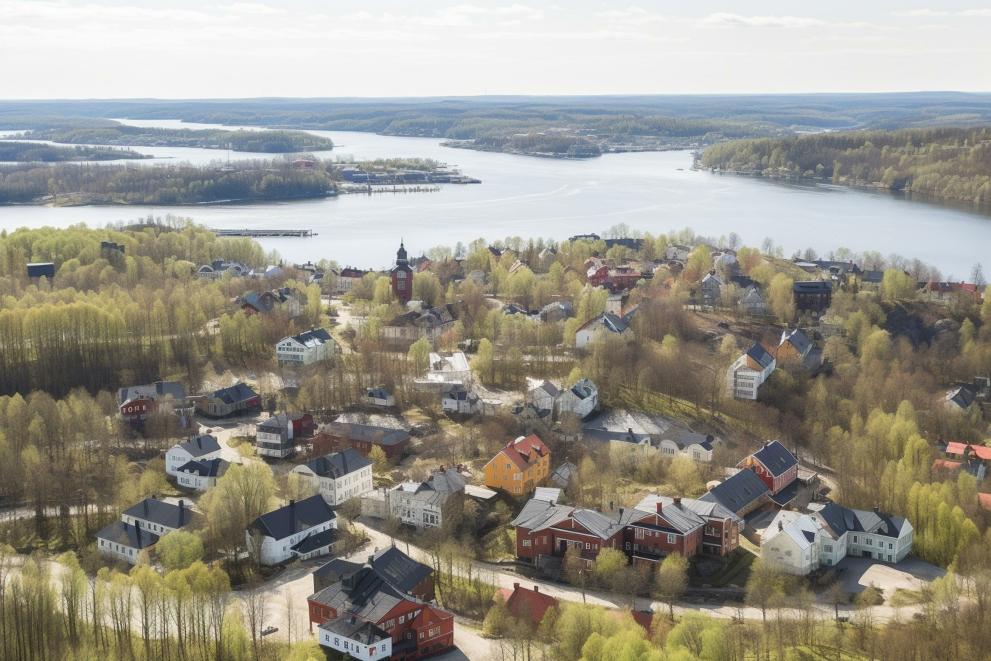
The Grant Agreement for the Sustainable and Affordable Housing for the New Green Industry and Society (SHERIS) project, which will support the construction of 7 housing complexes in Northern Sweden, has just been signed. SHERIS is financed by the European Union under the Public Sector Loan Facility, which is part of the Just Transition Mechanism (JTM), with a grant of €11 million. The grant complements a loan of €71 million (SEK 800 million) awarded by the European Investment Bank (EIB), bringing the total budget for the project to €142 million (SEK 1.6 billion).
The JTM PSLF support will facilitate the social transformation and urban development of Skellefteå needed to adapt to the emergence of a new green industry by supporting the construction of 7 housing complexes with around 750 energy-efficient social housing units.
Emma Toledano, Director at European Commission, Directorate-General for Regional and Urban Policy, said:
Through this project, the Public Sector Loan Facility will help the municipality of Skellefteå address the increasing demand of its rapidly growing population for sustainable and affordable housing, helping the city respond to its transformation needs. This inspiring project proves that the challenges deriving from the green transition can be addressed, and that EU investments are available to ensure so that no one and no region is left behind.
As the region of Västerbotten is shifting from mining and energy intensive industries to green economy, the municipality of Skellefteå finds itself at the forefront of the region’s green transition. With the establishment of a battery gigafactory (Northvolt) that requires a new skilled workforce, the municipality’s population is estimated to increase from 74,000 to more than 90,000 inhabitants by 2030.
Paloma Aba Garrote, CINEA Director, stated:
CINEA is proud to be supporting the green transformation of Skellefteå through the construction of sustainable, affordable and inclusive social housing for the municipality’s rapidly growing population. The Public Sector Loan Facility under the Just Transition Mechanism is exactly there to ensure that the transition to the green industry is fair to all EU citizens.
Around half of the affordable housing programme will target students of the expanding Skellefteå university campus to support the supply of new skills in the ongoing social and economic transformation. In addition, around 20% of the new housing will be made available for social lease contracts which will offer accommodation for people with low income or special needs and refugees to promote the development of inclusive communities.
Lorents Burman, Chairman of the Municipal Board at Skellefteå Kommun, added:
Skellefteå's social transformation is a challenge and a driver in the green transition. The PSLF grant from the European Commission and the loan from the EIB will help us to maintain a high pace in the production of new housing, a key factor in making the transition a reality. By providing energy efficient living areas, not only in the central parts of Skellefteå, but also outside, the project aligns with both the new environmental and climate programme and the mission to make Skellefteå climate neutral by 2030.
About PSLF
The Public Sector Loan Facility (PSLF) is the third pillar of the Just Transition Mechanism (JTM) – a key tool of the European Green Deal Investment Plan to make sure that no one and no region is left behind in the transition to a climate-neutral economy.
The PSLF combines loans from the European Investment Bank (up to €10 billion) with grants from the European Commission (up to €1.5 billion). The combined support is designed to mobilise additional investments for public sector entities in the regions most affected by the climate transition, as identified in the Territorial Just Transition Plans, to meet their development needs in the transition towards a climate-neutral economy. The blending of the European Investment Bank loan and the Commission grant will facilitate the financing of projects that do not generate sufficient streams of revenues to cover their investment costs.
Details
- Publication date
- 24 April 2024
- Author
- European Climate, Infrastructure and Environment Executive Agency
